"Umm Kulthum as no one knows her"…a symposium at the Faculty of Al-Alsun
The Foreign Cultural Relations Committee at the Faculty of Al-Alsun, Ain Shams University held its monthly symposium under the title: "Umm Kulthum, which no one knows", under the auspices of Prof. Salwa Rashad, Dean of the Faculty , and the supervision of Prof. Ashraf Attia, Vice Dean for Postgraduate Studies and Research Affairs, and Professor Ahmed Antar Mustafa, the well-known poet and owner of a number of poetry collections and critical articles, and the recipient of a number of literary awards, and the founder of the Um Kulthum Museum located in the Rawda area in Manial, commissioned by the Ministry of Culture, and he was its first director.
The symposium was opened by Prof. Maged Al-Saidi, Rapporteur of the Cultural Relations Committee, welcomed the poet Ahmed Antar Mustafa, the members of the committee, the guest professors, the faculty members, the assistant staff, and the students. Then Prof. Wageh Baakoub, the biography of the guest poet, then gave a lecture, which revolved around his experience in establishing and establishing the Umm Kulthum Museum.
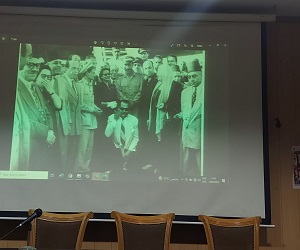 |
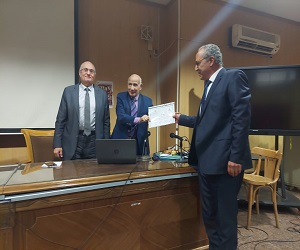 |
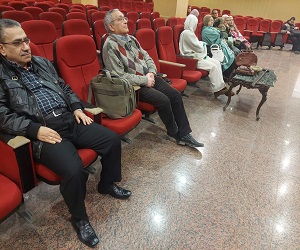 |
||
The poet Ahmed Antar Mustafa talked about the history of Umm Kulthum, her uniqueness, her integrated artistic personality, the role of the family, the environment and the general climate in Egypt after the 1919 revolution in making her, refining her talent and preparing her to perform her artistic message in this distinguished way that lived in the conscience of the Arab peoples to this day. Umm Kulthum was not Just a singer who chooses words well, sings poems, and chooses only the best melodies, but it was an exceptional case that is rare, if not impossible, to be repeated. In documenting Egypt's artistic, social and political history.
Then the door was opened for interventions, discussions, and comments from the audience. Dr. Mahmoud Abbas, Dr. Assem Al-Ammari, Dr. Nervin Al-Falaki, Dr. Faten Al-Ghazouli, Dr. Marwa Tantawi, and Dr. Suad Saleh spoke, and they asked their questions about some aspects of the journey of Mrs. Umm Kulthum, her social relations, and her role in life. Politics and art in Egypt in the first half of the twentieth century until her death in February 1975. The attendees praised the topic of the symposium and the important issues it raised in the field of awareness of the history of civilization in contemporary Egypt and how to document the events and personalities affecting the conscience of peoples.
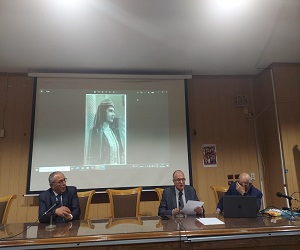 |
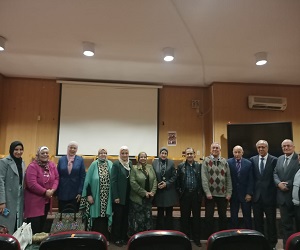 |
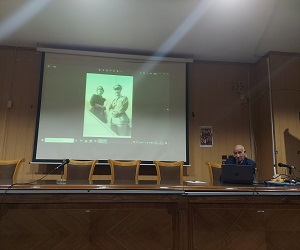 |
||
In conclusion, Prof. Maged Al-Saidi, Chairman of the Committee, presented the guest with a certificate of thanks and appreciation presented by the Faculty for his participation in the activities of the Graduate Studies and Research Affairs Sector and the activities of the Foreign Cultural Relations Committee.
The symposium came within the framework of the faculty and the Foreign Cultural Relations Committee's keenness to shed light on Egypt's pioneering role in art, culture and thought, and to present a positive image of authentic Egyptian art to current generations who do not know much about these treasures.


.svg)




